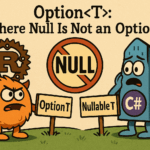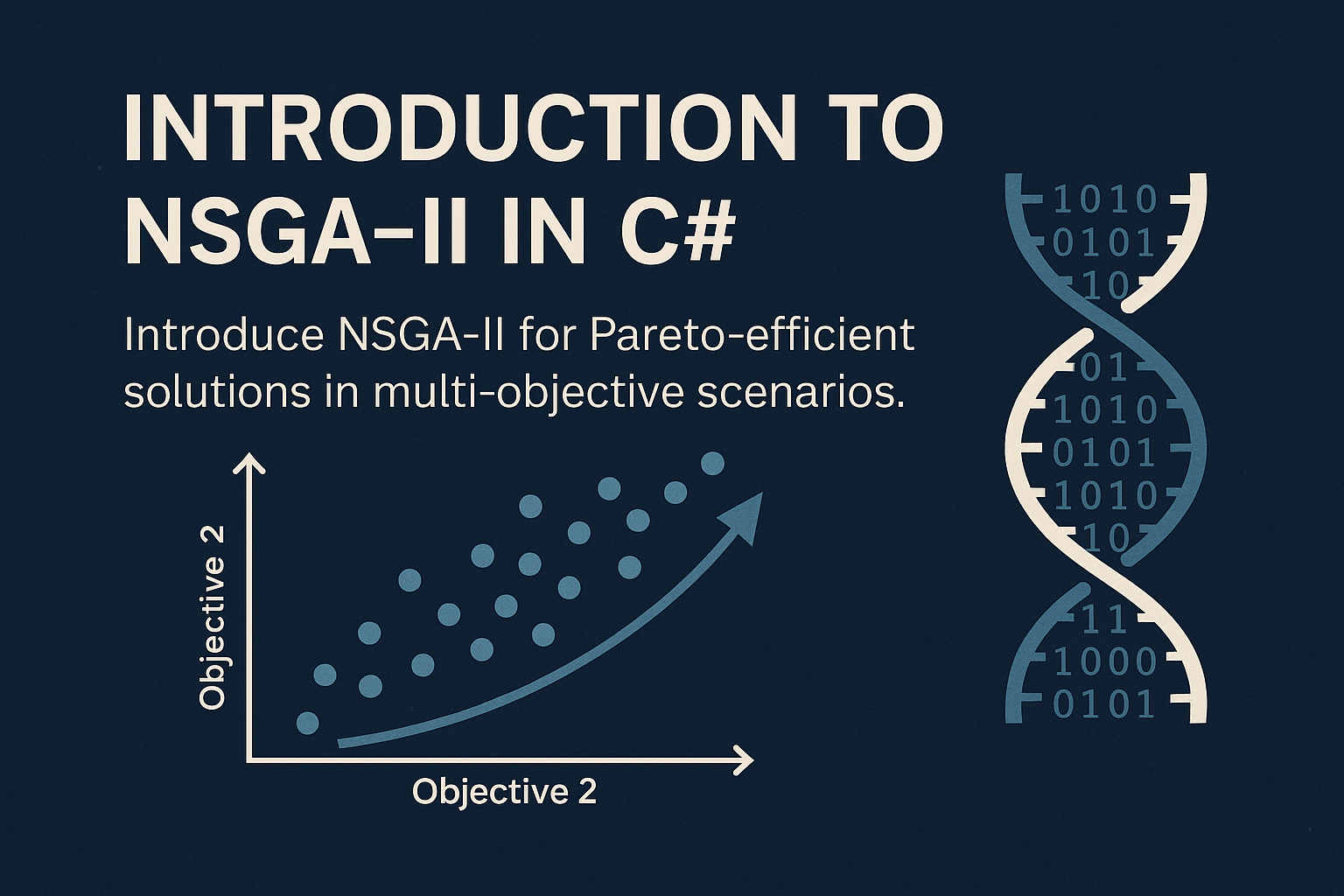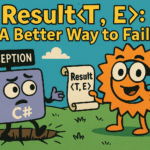
Option<T>: Where Null Is Not an Option
- Chris Woodruff
- April 29, 2025
- Rust
- .NET, C#, dotnet, programming, rust
- 2 Comments
Ah, nulls, the “billion-dollar mistake” that haunts just about every C# developer. How many times have you chased down a NullReferenceException, muttering under your breath, “But how could this even be null?” Well, guess what? In Rust, nulls are not a thing. At least, not in the wild-and-dangerous sense we’re used to in .NET.
Instead, Rust gives us Option<T>. And let me tell you, once you get a taste of it, you’ll wonder why we ever let null run loose in the first place.
What Is Option?
Option<T> is Rust’s way of representing an optional value. A value can either be Some(T)—meaning there’s a value or None, meaning there isn’t.
Here’s the basic idea:
fn main() {
let some_number = Some(5);
let no_number: Option<i32> = None;
if let Some(n) = some_number {
println!("Number is: {}", n);
} else {
println!("No number found");
}
}
No rogue nulls. No “oops, I forgot to check”. It’s all baked into the type system, and the compiler makes sure you handle both cases.
Nullable in C#: Close, But Not Quite
C# has Nullable<T>, which handles value types like int?, but reference types have always had a bit of a Wild West relationship with null. C# 8+ introduced nullable reference types with warnings and annotations, but it’s still on you to check and handle it properly.
Example in C#:
int? someNumber = 5;
if (someNumber.HasValue)
{
Console.WriteLine($"Number is: {someNumber.Value}");
}
else
{
Console.WriteLine("No number found");
}
But with reference types:
string? name = null;
if (name != null)
{
Console.WriteLine(name);
}
else
{
Console.WriteLine("No name");
}
The difference? In Rust, you can’t even forget to check. The compiler will smack your hand if you try.
Pattern Matching FTW
Rust makes handling Option<T> not only safe but also elegant with pattern matching:
fn print_number(num: Option<i32>) {
match num {
Some(n) => println!("The number is: {}", n),
None => println!("No number provided"),
}
}
fn main() {
print_number(Some(42));
print_number(None);
}
Compare that with how much boilerplate we often have to write in C# just to feel “safe.”
Chaining Options: The unwrap_or Magic
Sometimes you want to provide a default if None shows up. Rust makes this painless:
fn main() {
let number = Some(5);
let value = number.unwrap_or(0); // returns 5 because Some(5)
let no_number: Option<i32> = None;
let default_value = no_number.unwrap_or(0); // returns 0 because None
println!("Value: {} | Default: {}", value, default_value);
}
This beats the pants off of repetitive null checks any day.
Why This Matters
Rust’s approach forces you to handle the “maybe” case upfront, making your intentions clear. No surprises at runtime. No, wondering if a function might hand you a null in disguise. And because it’s enforced at compile-time, you sleep better at night.
In C#, nullable reference types are a nice band-aid, and Nullable<T> helps with value types, but neither offers the rock-solid guarantee that Rust’s Option<T> brings to the table.
Wrapping Up
Rust’s Option<T> turns a common headache into a non-issue. It’s not about being fancy—it’s about making “do you have a value or not?” explicit, safe, and easy to handle.
Next time, we’ll look at Result<T,E>—because sometimes things don’t just disappear, they fail. And Rust wants to help you deal with that gracefully. See you there!







Saeid
“The difference? In Rust, you can’t even forget to check. The compiler will smack your hand if you try.”
C# is more forgiving by default, but it’s possible to enforce it by setting “TreatWarningsAsErrors” in the .csproj file.
MV10
“This beats the pants off of repetitive null checks any day.”
The C# equivalent to unwrap_or() is actually shorter:
int? number = 5;
var val = number ?? 0;